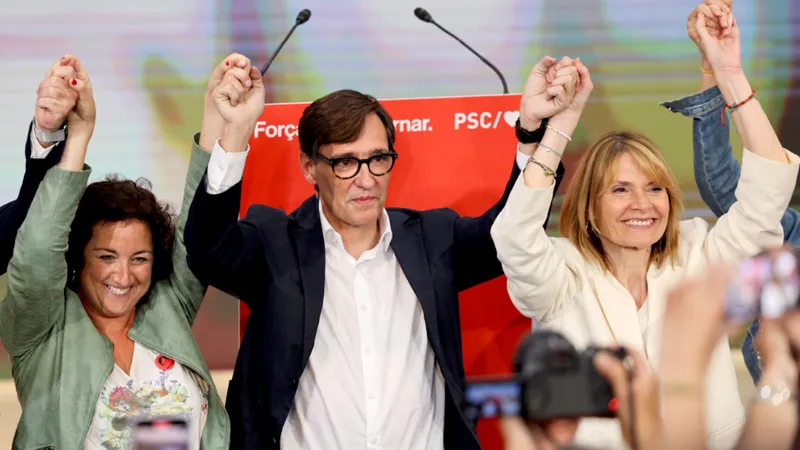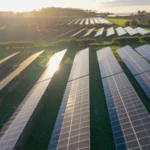The Catalan Socialist Party (PSC), headed by former Spanish health minister Salvador Illa, won with notable gains.
It has 42 seats with 99% of the votes counted.
The Catalan government’s statistics institute reports that support for independence has decreased to 42% from 49% in 2017.
Other issues, like the region’s housing crisis and drought, overshadowed the discussion of Catalonia’s connection with the rest of Spain during the election campaign.
The rigid The main pro-independence party, Together for Catalonia (JxCat), led by former regional president Carles Puigdemont, regained its position by coming in second with 35 seats.
“A new era for Catalonia” was how Mr. Illa celebrated the outcome. “Policies implemented by the Spanish government and its prime minister, Pedro Sánchez, to whom I send my acknowledgement and thanks,” he said, were among the causes that had ensured the outcome.
The legislative backing that JxCat and ERC provided to Mr. Sánchez during his investiture, which enabled him to establish a new central government in November of last year, was contingent upon the amnesty law.







